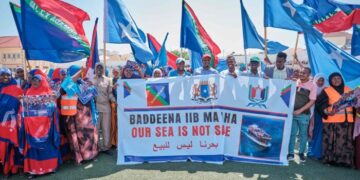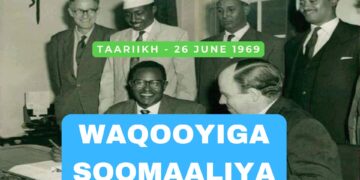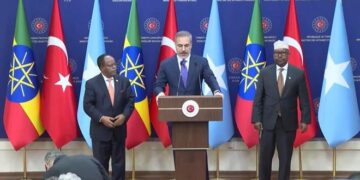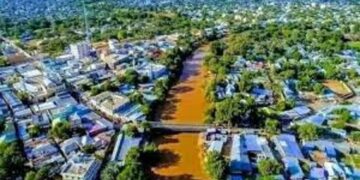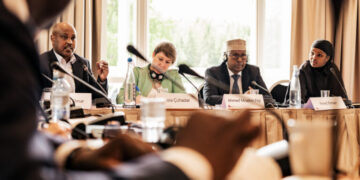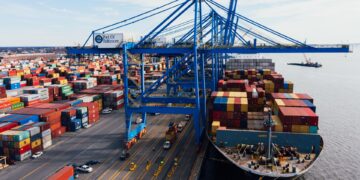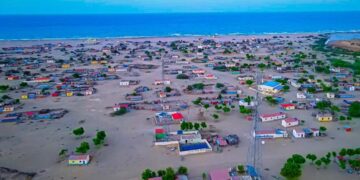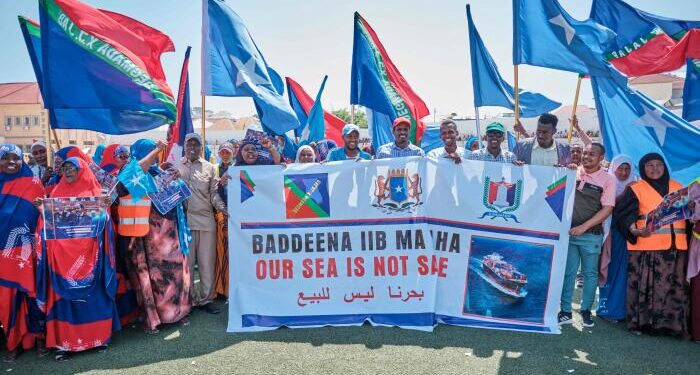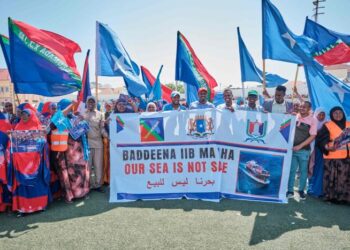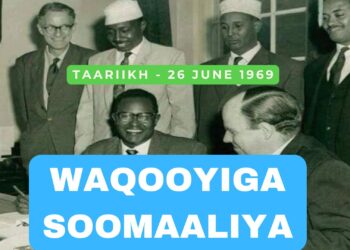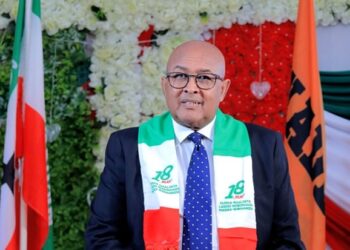Reports have surfaced indicating that Israel, with backing from the United Arab Emirates (UAE), is planning to establish a military base in the strategic port city of Berbera, located in Somaliland, northern Somalia. Originally reported by Israeli newspaper Maariv and Middle East Monitor, this development has raised concerns about regional security and Somalia’s sovereignty. Despite the gravity of the situation, the Somali government has yet to address these reports, sparking criticism over its lack of transparency.
At the same time, Somaliland has entered into a memorandum of understanding (MOU) with Ethiopia 1 January 2024, further complicating relations between Mogadishu and the self-declared independent region. This growing regional and international engagement in Somaliland is escalating tensions within Somalia, which is already grappling with internal conflicts and instability.
The Gulf of Aden, where Berbera is situated, holds immense strategic value as it borders one of the world’s busiest shipping lanes, the Bab-el-Mandeb Strait. This prime location is highly coveted by global powers looking to secure military outposts that can influence regional trade and security.
According to the reports, Israel’s interest in establishing a military base in Berbera comes with the UAE’s financial and logistical support. The UAE has already invested heavily in the Berbera port, and this new development would signify a dramatic shift in the geopolitical landscape of the Horn of Africa. Such a move could draw Somalia deeper into international military alliances, which many fear could destabilize the region.
However, the Somali government has remained silent on the matter, offering no confirmation or denial of these reports. This silence has raised questions about whether Mogadishu is fully aware or even capable of controlling what happens in Somaliland.
Compounding the issue is Somaliland’s recent MOU with Ethiopia. The agreement focuses on expanding trade and infrastructure cooperation, particularly by providing Ethiopia increased access to the Berbera port. This deal signals Somaliland’s growing independence and its ability to form international partnerships without Mogadishu’s oversight.
Ethiopia’s involvement in Somaliland also adds a new layer of complexity to Somalia’s regional politics. Historically, Ethiopia has played an uncertain balancing act between maintaining relations with Somalia’s central government while also engaging with Somaliland as if it were an independent nation, further complicating the already fragile dynamics in the region. However, the new agreement could be interpreted as Ethiopia moving closer to recognizing Somaliland’s autonomy, further weakening Somalia’s claim over the territory.
The Somali government’s failure to address the Israeli base reports and Somaliland’s growing international ties points to deeper, unresolved issues within Mogadishu. Somalia has long struggled with internal political instability, regional fragmentation, and corruption, making it difficult for the federal government to exert control over its territory.
While Somaliland declared independence in 1991, it remains unrecognized by the international community, yet acts largely autonomously. This is just one of the many regional conflicts Somalia faces. In the south, the semi-autonomous region of Jubaland has also clashed with the central government, while Puntland, in the northeast, frequently operates independently of Mogadishu.
These regional disputes, combined with internal political power struggles, have left Somalia fractured. The federal government’s inability to maintain authority over its regions has opened the door for foreign powers like the UAE, Ethiopia, and now potentially Israel, to increase their influence.
The Somali government’s silence on these key developments is raising serious concerns. There are several potential reasons why Mogadishu has not yet addressed the reports:
Somalia has historically supported the Palestinian cause and maintains close ties with the Arab world. Any involvement with Israel, particularly military cooperation, could provoke a strong public outcry. The government may be trying to avoid stirring tensions by keeping quiet.
Loss of Control Over Somaliland:The Somali government’s silence may also reflect its lack of influence over Somaliland, which operates with considerable autonomy. Mogadishu’s failure to assert authority over the region makes it difficult to provide a clear response to the reports.
Internal Distractions: Ongoing political infighting within the Somali government could be distracting leaders from addressing the issue. These internal conflicts have long delayed crucial decisions and undermined the government’s ability to manage the country effectively.
Foreign Pressures: The involvement of the UAE, a significant player in the region, could be complicating the situation. Somalia may be under diplomatic pressure to refrain from commenting publicly on the matter.
The Somali people are left in the dark as these geopolitical maneuvers unfold, raising legitimate concerns about the country’s sovereignty. The potential establishment of an Israeli military base in Berbera, Somaliland’s deal with Ethiopia, and the growing influence of foreign powers all demand clear and open communication from the Somali government.
If the government continues to remain silent, it risks losing further credibility with its people and leaving Somalia vulnerable to external manipulation. The Somali public deserves answers on whether foreign military bases are being established on their soil and what that means for their national security and sovereignty.
As reports of an Israeli military base in Berbera and Somaliland’s MOU with Ethiopia emerge, Somalia is at a critical juncture. The government’s silence on these issues, combined with internal conflicts and growing foreign influence, paints a troubling picture of a nation struggling to maintain its sovereignty. Without transparency and decisive action from Mogadishu, Somalia risks becoming a pawn in a larger geopolitical game that could further destabilize the region.

